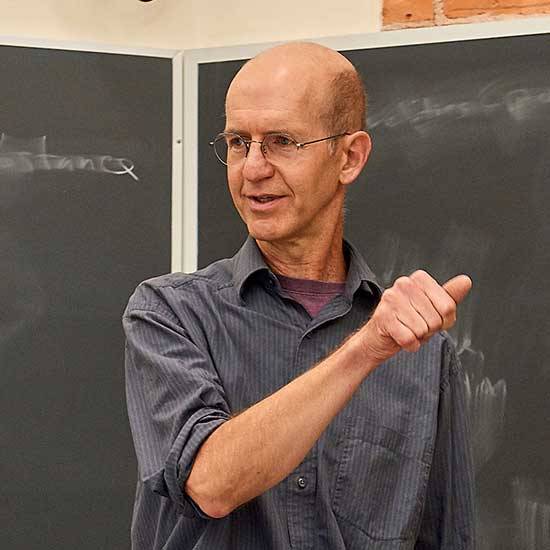Professor Ed Witherspoon Leads Discussion on ‘The Logic of Acknowledgement’
The spring Arts and Humanities Colloquium series continued this past Tuesday, March 1 with a talk organized by the philosophy department, featuring Colgate’s Edward Witherspoon, associate professor of philosophy and instructor in linguistics.
Witherspoon’s lecture, entitled “The Logic of Acknowledgement,” began with an attempt to illustrate the role of acknowledgment in everyday life and clarify the distinctions between genuine acknowledgement and its supposititious counterpart.
Witherspoon claimed that, “acknowledgment goes beyond knowledge,” meaning it carries an additional pair of distinct traits. These traits are an obligation of action (to whatever claim has been acknowledged) and a message about either the character or feeling of the speaker.
According to Witherspoon’s definition, acknowledgement is genuine only when it serves as the first step in a series of actions related to the claim which is presented. In particular, acknowledgement can be a powerful tool for self-growth.
“When you acknowledge your shortcomings, you acknowledge your responsibility to address these shortcomings,” Witherspoon said.
Witherspoon then proceeded to tie his insight on the parameters of acknowledgment to a specific case, relevant to all of us here on Colgate’s campus. Indicative of a larger contemporary issue, Colgate recently issued a Land Acknowledgement Statement, recognizing that our campus sits on unceded lands formerly possessed by the Oneida Indian Nation. As noted by an audience member at the lecture, this statement was issued by Colgate in response to requests by members of the faculty identifying as indigenous.
Under his proposed conditions for genuine acknowledgment, Witherspoon aimed to analyze whether this statement was a case of genuine acknowledgment or not. While the statement definitely fulfilled the condition of being based on knowledge, questions were raised — and left for further thought — about whether the statement addressed the correct audience. The conclusion seemed to be that, while the statement may have been issued with pure intentions, there is certainly more that should follow from this statement before genuine acknowledgement conditions are fulfilled.
The talk spurred insightful questions and interesting dialogue from the audience. Professor of philosophy and chair of the philosophy department Jason Kawall noted:
“I thought professor Witherspoon’s talk was an excellent example of careful philosophical work on an important, timely subject — as many audience members noted. He brought out the importance of acknowledgment as an oftentimes crucial step in addressing past harms and wrongdoings, while drawing to the many ways in which such acknowledgments may fall short,” Kawall said. “By demonstrating their importance in accepting responsibility, professor Witherspoon also illuminated why we are often so reluctant to acknowledge harms we ourselves have caused or profited from.”
Another attendee, junior Ava Horn, was also impressed with Witherspoon’s analysis of acknowledgement.
“Professor Witherspoon’s talk on acknowledgement made me think deeper about the difference between acknowledgement and acceptance of acknowledgement and the ways in which we utilize these two forms in our everyday lives,” Horn said.
“The Logic of Acknowledgement” kicked off a busy stretch for the philosophy department with another talk the next day and this past Monday, March 7. Information about future events and lectures can be found on the Colgate philosophy department website.







